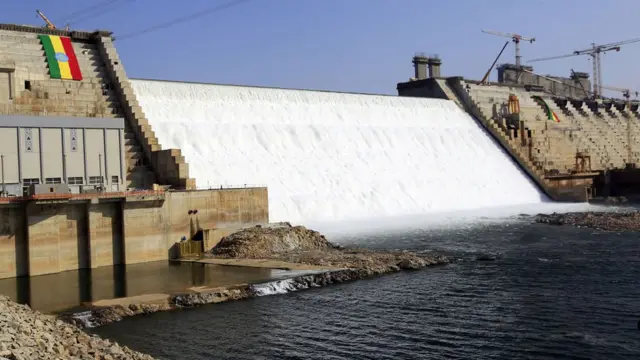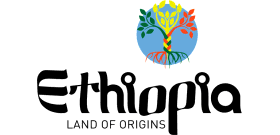Ethiopia's Grand Dam Unlocks Eco-Tourism Potential Amidst Blue Nile Concerns

TheGrand Ethiopian Renaissance Dam (GERD) marks a significant milestone with the completion of its construction and filling stages, poised for inauguration in mid-September. Beyond its primary role as a colossal energy generator, GERD is strategically positioned as a transformative economic catalyst, particularly for Ethiopia's tourism and hospitality sectors in theBenishangul Gumuz Region. The dam's completion has, however, also led to unprecedented water recession in Sudan's Blue Nile, sparking discussions about its regional impacts and the need for cooperative management among Nile Basin countries.
Ethiopia envisions GERD as a unique asset for tourism development. The vast GERD reservoir, anticipated to cover approximately 1,700 km² and featuring over 70 islands, a thriving aquatic ecosystem, and new biodiversity zones, offers immense ecotourism potential. This includes opportunities for boat tours, bird watching, fishing trips, and appreciation of scenic landscapes.
The reservoir's islands and shores are deemed prime locations for floating resorts, lakeside lodges, and cultural tours that celebrate the rich heritage of local ethnic groups such as the Berta, Gumuz, Mao, Komo, and Shinasha. A floating resort project on the GERD lake has even been proposed through a feasibility study to boost economic activity and recreational appeal. Furthermore, the lake can host water sports competitions like canoeing and rowing, akin to recreational tours on Lake Tana.

Photo Credit: Reuters
The dam also fosters burgeoning food and agri-tourism. The new freshwater fishery scene in the reservoir is projected to yield several thousand tons annually, supporting local restaurants, food tourism, and fish-related businesses, which could attract international tourists. Investments in hatcheries and processing facilities are underway to integrate with the hospitality sector, ensuring fresh, local cuisine becomes a significant draw.
Ethiopia's deep cultural ties to food, especially the unique, underexplored culinary traditions of the Benishangul-Gumuz region (e.g., Gumuz and Berta ethnic foods) and traditional Ethiopian dishes, present ideal opportunities for authentic food experiences. Lakeside farms, benefiting from irrigated agriculture, could offer visitors insight into local farming practices, harvest experiences, and farm-to-table dining. Floating restaurants, lakeside cafés, and eco-lodges could serve local dishes with views of the dam and wildlife, complemented by regional food festivals celebrating ethnic cuisine and music.
For tourism to flourish, robust infrastructure and services are critical. This includes improved access roads, boat facilities, visitor centers, and reliable power and water access. The Benishangul-Gumuz region is already making strides, having hosted 40,600 tourists in 2022/23, generating over 103 million Birr, and earmarking 69,000 hectares for diverse investments, including tourism and hospitality. Infrastructure upgrades, such as a bridge over the Blue Nile and enhanced roads, have reduced travel times, and Asosa Airport, though needing expansion, services the regional capital.
The launch of Africa's first all-optical government office at the GERD site signifies Ethiopia's commitment to smart infrastructure. Community participation in planning, training, and equitable benefit-sharing, along with strong public-private partnerships, are crucial for sustainable development and maintaining global standards in resort areas and recreational facilities.
Beyond GERD, the Benishangul-Gumuz region boasts significant wildlife and ecotourism potential with protected areas like Didessa National Park, Mao-Komo National Park, and Alatish National Park, home to diverse flora and fauna, including elephants, leopards, and a previously undocumented lion population. Untapped areas like the Haro Aba Diko Controlled Hunting Area also offer appeal.
Regionally, the completion of GERD's filling has profound implications. Ethiopia's Minister of Water and Energy emphasized the dam as a “tool for cooperation,” not conflict, asserting that Ethiopia's development will not come at the expense of its neighbors. According to infrastructure expert Abubakr Mohamed Mustafa Fadlallah, Sudan stands to gain significantly from GERD.
The dam, with its 74 billion cubic meter storage capacity, regulates Blue Nile flows, distributing water evenly throughout the year, which enhances irrigation, electricity generation, and dam management in Sudan. It reduces destructive flood risks, allows for expansion of fish farming and agriculture, and can reduce silt by up to 50%, improving the efficiency of Sudan's dams and irrigation systems, especially in El Gezira. Sudan and Ethiopia maintain technical coordination and data-sharing for dam management.
However, the GERD project is not without its controversies and risks. Egypt remains in dispute with Ethiopia, accusing it of unilateral action that threatens Cairo's water security. Concerns from other experts, such as Ahmed Abdualah El Sheikh, highlight potential risks during exceptional floods, where sudden gate openings could cause catastrophic downstream flooding.
El Sheikh also notes that Sudan's northern deserts rely on annual floods for fertile silt, and its reduction could lead to fertility decline and desertification. Dr. Ahmed El Muftihas even labeled GERD a “water bomb,” warning of potential collapse and the lack of compensation obligations under the 2015 Declaration of Principles. These contentions underscore the critical need for a binding legal framework among Nile Basin countries to ensure data-sharing, coordinated management, and equitable benefit-sharing.

Photo Credit: BBC News
Sustainable tourism development around GERD also necessitates addressing environmental challenges. Research indicates a significant increase in water and sediment yields in the Blue Nile Basin upstream of GERD, posing a risk to the dam's storage capacity and operational lifespan. While GERD was designed to trap sediment for up to 100 years, rapid land degradation may jeopardize this. Consequently, community-based participatory watershed protection programs and broader catchment conservation are crucial to preserve the dam's longevity and the area's natural appeal. Promoting peace and stability in the Horn of Africa through clean hydroelectric power supply and enhancing Ethiopia's national image and assertiveness are also broader benefits attributed to GERD.
Ultimately, securing sustained tourism development and regional harmony around GERD depends on integrated approaches. This includes fostering strong public-private partnerships, investing in comprehensive infrastructure, ensuring robust environmental conservation, and crucially, establishing a cooperative and legally binding framework for water management among all Nile Basin states. As water affairs expert Saleh Hamad Omer emphasized, cooperation is the only way to secure sustainable development in the face of rising water-related complexities.
You may also like...
When Sacred Calendars Align: What a Rare Religious Overlap Can Teach Us

As Lent, Ramadan, and the Lunar calendar converge in February 2026, this short piece explores religious tolerance, commu...
Arsenal Under Fire: Arteta Defiantly Rejects 'Bottlers' Label Amid Title Race Nerves!

Mikel Arteta vehemently denies accusations of Arsenal being "bottlers" following a stumble against Wolves, which handed ...
Sensational Transfer Buzz: Casemiro Linked with Messi or Ronaldo Reunion Post-Man Utd Exit!

The latest transfer window sees major shifts as Manchester United's Casemiro draws interest from Inter Miami and Al Nass...
WBD Deal Heats Up: Netflix Co-CEO Fights for Takeover Amid DOJ Approval Claims!

Netflix co-CEO Ted Sarandos is vigorously advocating for the company's $83 billion acquisition of Warner Bros. Discovery...
KPop Demon Hunters' Stars and Songwriters Celebrate Lunar New Year Success!

Brooks Brothers and Gold House celebrated Lunar New Year with a celebrity-filled dinner in Beverly Hills, featuring rema...
Life-Saving Breakthrough: New US-Backed HIV Injection to Reach Thousands in Zimbabwe

The United States is backing a new twice-yearly HIV prevention injection, lenacapavir (LEN), for 271,000 people in Zimba...
OpenAI's Moral Crossroads: Nearly Tipped Off Police About School Shooter Threat Months Ago
ChatGPT-maker OpenAI disclosed it had identified Jesse Van Rootselaar's account for violent activities last year, prior ...
MTN Nigeria's Market Soars: Stock Hits Record High Post $6.2B Deal

MTN Nigeria's shares surged to a record high following MTN Group's $6.2 billion acquisition of IHS Towers. This strategi...


